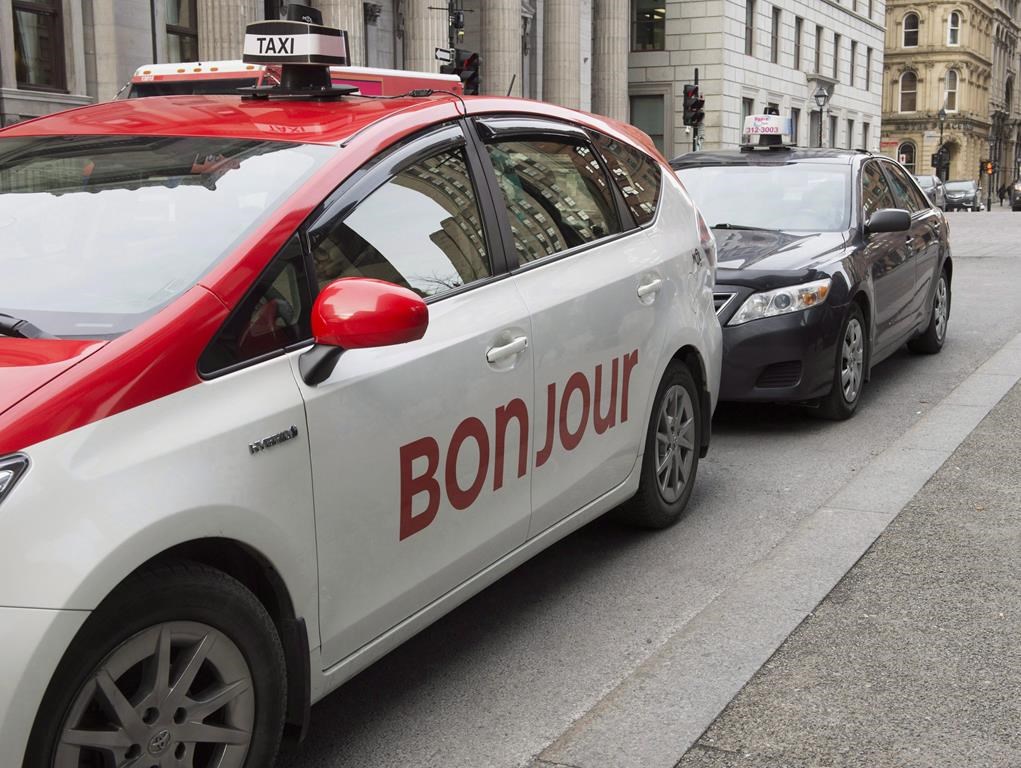On the eve of the Thanksgiving long weekend, Quebec MNAs debated up to the last minute over taxi reforms.

Bill 17 will get rid of the need for taxi permits and make Uber permanently legal in the province.
Taxi drivers say these reforms put their jobs in peril — the bill gets rid of quotas, allowing Uber and other ridesharing companies to operate. Taxi drivers say they will have to work longer hours because they’ll have fewer and fewer clients.
The taxi industry held another protest outside of the national assembly Thursday morning, while inside it was crunch time for the politicians studying the bill. The pilot project for Uber ends Monday. Without new legislation, Uber would have been illegal.
READ MORE: Quebec premier says he could invoke closure to pass taxi bill
In Thursday’s question period, Transport Minister François Bonnardel begged opposition parties to finish the work on the bill. If not, he threatened to invoke closure to force the national assembly to sit all night to pass this legislation.
“No one here is impatient to have a long and painful night at the national assembly,” said Quebec Solidaire (QS) house leader Gabriel Nadeau-Dubois.
“The most important thing is to do my job properly,” added QS MNA Ruba Ghazal.
She gave the example of an amendment that would have stripped taxi drivers of the right to compensation if they were to bring forth a class action lawsuit. The minister later abandoned the amendment after opposition parties put pressure on him.
“If we go as fast as Minister Bonnardel wants us to go, we will make other, very big errors,” Ghazal said.
- What is a halal mortgage? How interest-free home financing works in Canada
- Capital gains changes are ‘really fair,’ Freeland says, as doctors cry foul
- Budget 2024 failed to spark ‘political reboot’ for Liberals, polling suggests
- Tesla’s net income drops 55% in first quarter amid falling global sales
READ MORE: Quebec proposes new offer to help taxi drivers under Bill 17 — including extra fees for clients
All parties finally struck a last-minute deal to adopt the bill Thursday night.
Opposition parties said Minister Bonnardel only has himself to blame for it coming down to the wire.
“This bill is particularly badly prepared. We said it from the beginning. All or most of the articles have been changed over the work in the commission,” said Parti Quebecois MNA Joël Arseneau.
Quebec Solidaire said there wasn’t adequate time to study the reforms and the government missed opportunities to make this bill better, like ensuring the industry becomes greener.
“The industry did a lot of efforts to electrify their cars and now everybody can come with any type of car. This is the type of thing that we maybe can reduce the impact on the workers, on the environment and also on the people who take these services,” said Ghazal.
READ MORE: Montreal wants more control over taxi industry once province implements reforms
Premier François Legault said allowing Uber and other ridesharing companies to operate in the province is good for the environment.
“First, because we have to build less cars, less tools. Secondly, we hope in the future we’ll see more and more passengers in the same car,” he said.
Legault also said the quota system that required taxi drivers to purchase a permit, which costs as much as $200,000, no longer makes sense.
“It costs you less than that to become a doctor. So it doesn’t make sense. It started at $10,000 or $20,000 a year, now it’s $200,000. But what’s important is that our government is ready to repay 100 percent of the costs,” said Legault.
Paying back the taxi permits will cost the Quebec government more than $800 million.




Comments